An academic’s perspective of presenting mosquito behaviour and chemical ecology research at The Royal Entomological Society’s ENTO-19 conference at the London School of Hygiene and Tropical Medicine.
Dr Richard Halfpenny and recent graduate and biological sciences intern Steven Lloyd-Jones have been collaborating on this project to present at ENTO-19. Both Richard and Steven have written about their experience during the project, the lead up to and during the conference itself. Although both worked on the project and attended the conference, their blogs provide an interesting insight into how perspectives of the same events can differ based on personal experience. Read below for Dr Richard Halfpenny’s thoughts.
August 20-22nd 2019 saw the Royal Entomological Society’s annual conference Ento-19 arrive at the prestigious London School of Hygiene and Tropical Medicine. 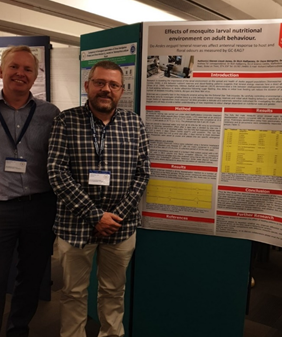 This year’s conference had a focus on the impact of insects on disease around the world. This impact is vast and unrelenting and is borne by plants, animals and humans alike. Alongside human diseases such as malaria, dengue, Zika and West Nile virus that cause such mortality and morbidity around the world. Then there are veterinary disease that cause suffering to domesticated animals, reducing farming yield and greatly increasing welfare costs. And then we need to factor in the enormous impact of insect pests on agricultural crops – not only are these herbivores and therefore directly reducing crop yields, but they also spread diseases between plants that can decimate crops. As is often the case these burdens are disproportionately borne by those countries least well placed to carry them. Continue reading
This year’s conference had a focus on the impact of insects on disease around the world. This impact is vast and unrelenting and is borne by plants, animals and humans alike. Alongside human diseases such as malaria, dengue, Zika and West Nile virus that cause such mortality and morbidity around the world. Then there are veterinary disease that cause suffering to domesticated animals, reducing farming yield and greatly increasing welfare costs. And then we need to factor in the enormous impact of insect pests on agricultural crops – not only are these herbivores and therefore directly reducing crop yields, but they also spread diseases between plants that can decimate crops. As is often the case these burdens are disproportionately borne by those countries least well placed to carry them. Continue reading


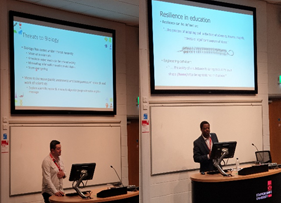
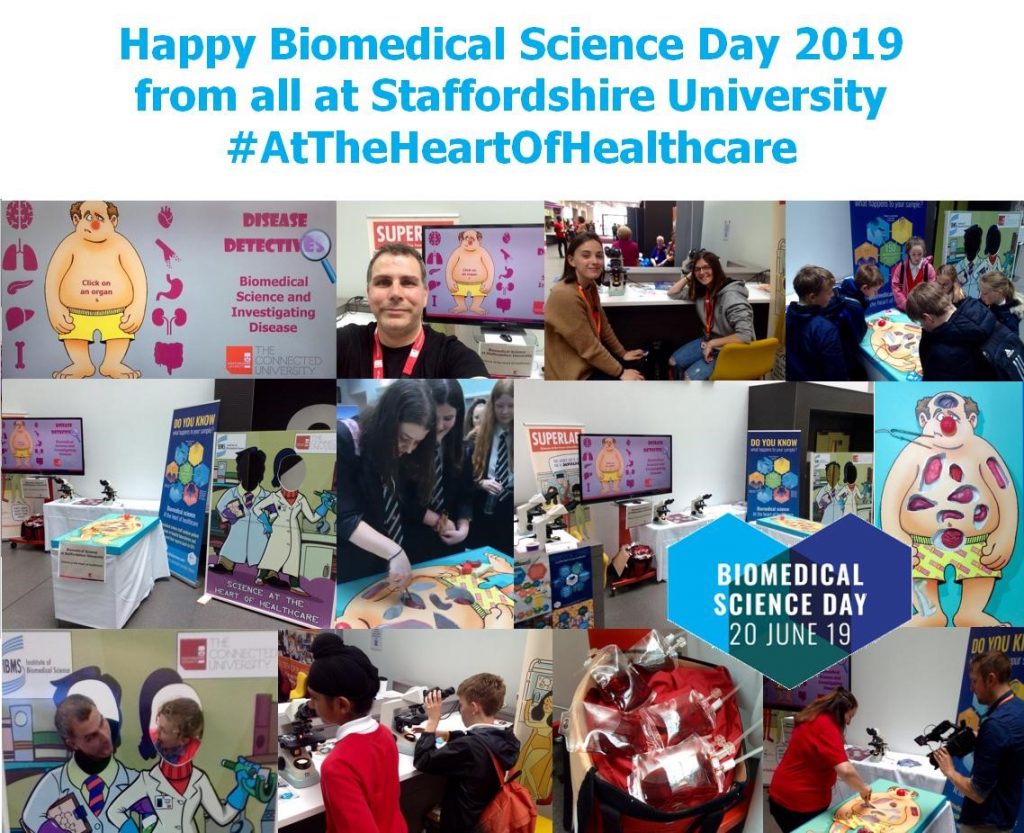
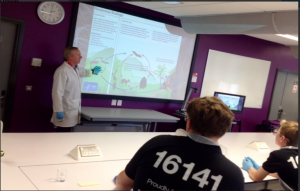 Eleanor Atkins along with some of our brilliant specialist technicians ran workshops throughout the day of a taster into being an Eco Detective. This workshop saw students being hands-on in investigating incidences of dead fish being discovered in the Dee Estuary, testing samples collected from the river Dee and the estuary itself to identify the pollutant and its source, all technics which would be used by The Environmental Agency.
Eleanor Atkins along with some of our brilliant specialist technicians ran workshops throughout the day of a taster into being an Eco Detective. This workshop saw students being hands-on in investigating incidences of dead fish being discovered in the Dee Estuary, testing samples collected from the river Dee and the estuary itself to identify the pollutant and its source, all technics which would be used by The Environmental Agency. 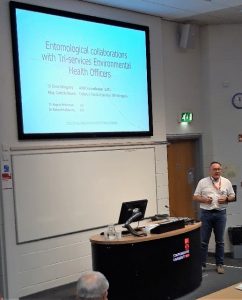
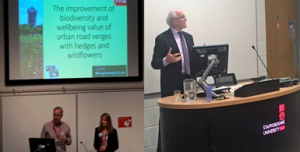
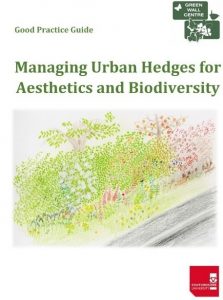 The PGR Conference is hosted annually at the university to showcase the post-graduate research being carried out from all schools across the university. We saw two of our PhD students informing other post-graduates and staff members of their research.
The PGR Conference is hosted annually at the university to showcase the post-graduate research being carried out from all schools across the university. We saw two of our PhD students informing other post-graduates and staff members of their research.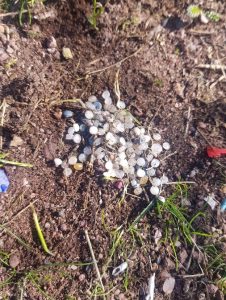 Eleanor Harrison presented the beginning of her research into soil microplastics. Speaking about the need for research into terrestrial microplastics as current research and media attention is centred around marine macro and microplastics which is an issue but studies of plastics in soil and the effects that it may have on agricultural, environmental and human health aspects are lacking. Ellie is in the early stages of her PhD but has already begun testing the effectiveness of methodologies in separating the microplastics from the organic matter in soil samples to be able to analyse the samples. Ellie is now in America with colleagues from the School of Law, Policing and Forensics, taking part in a expedition of the Hudson River with the Rozalia Project, sampling soil from river banks along the way and analysing them for microplastics, mainly nurdles (small plastic pellets roughly the size of a lentil) which are used industrially to make plastic products.
Eleanor Harrison presented the beginning of her research into soil microplastics. Speaking about the need for research into terrestrial microplastics as current research and media attention is centred around marine macro and microplastics which is an issue but studies of plastics in soil and the effects that it may have on agricultural, environmental and human health aspects are lacking. Ellie is in the early stages of her PhD but has already begun testing the effectiveness of methodologies in separating the microplastics from the organic matter in soil samples to be able to analyse the samples. Ellie is now in America with colleagues from the School of Law, Policing and Forensics, taking part in a expedition of the Hudson River with the Rozalia Project, sampling soil from river banks along the way and analysing them for microplastics, mainly nurdles (small plastic pellets roughly the size of a lentil) which are used industrially to make plastic products.